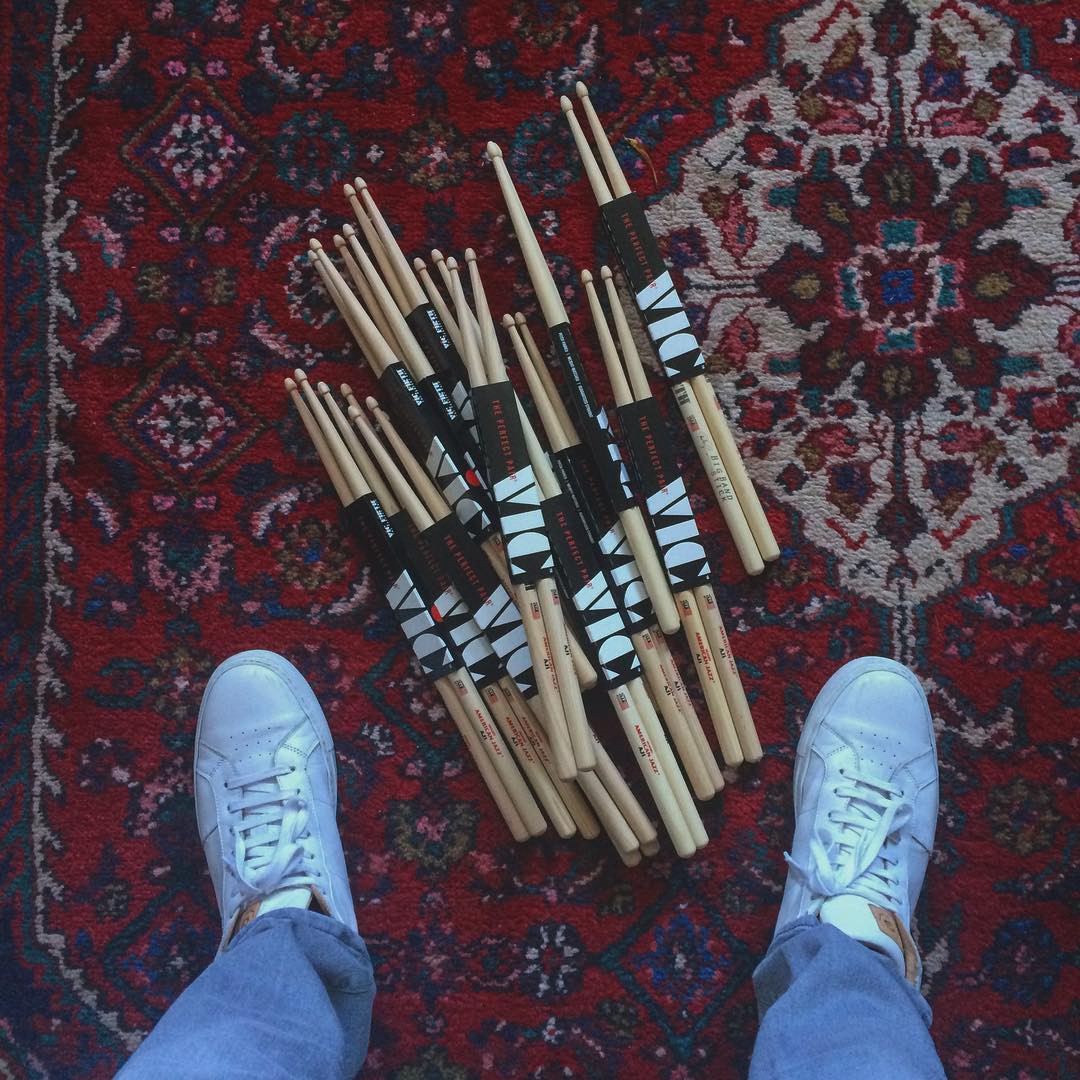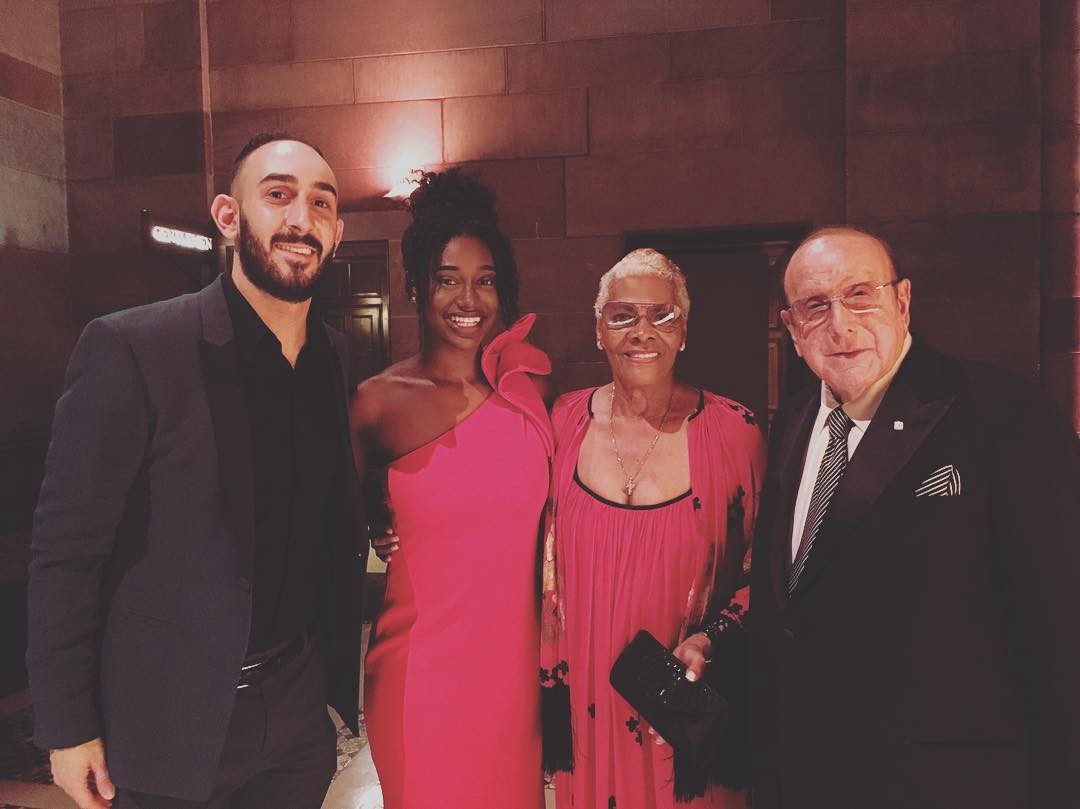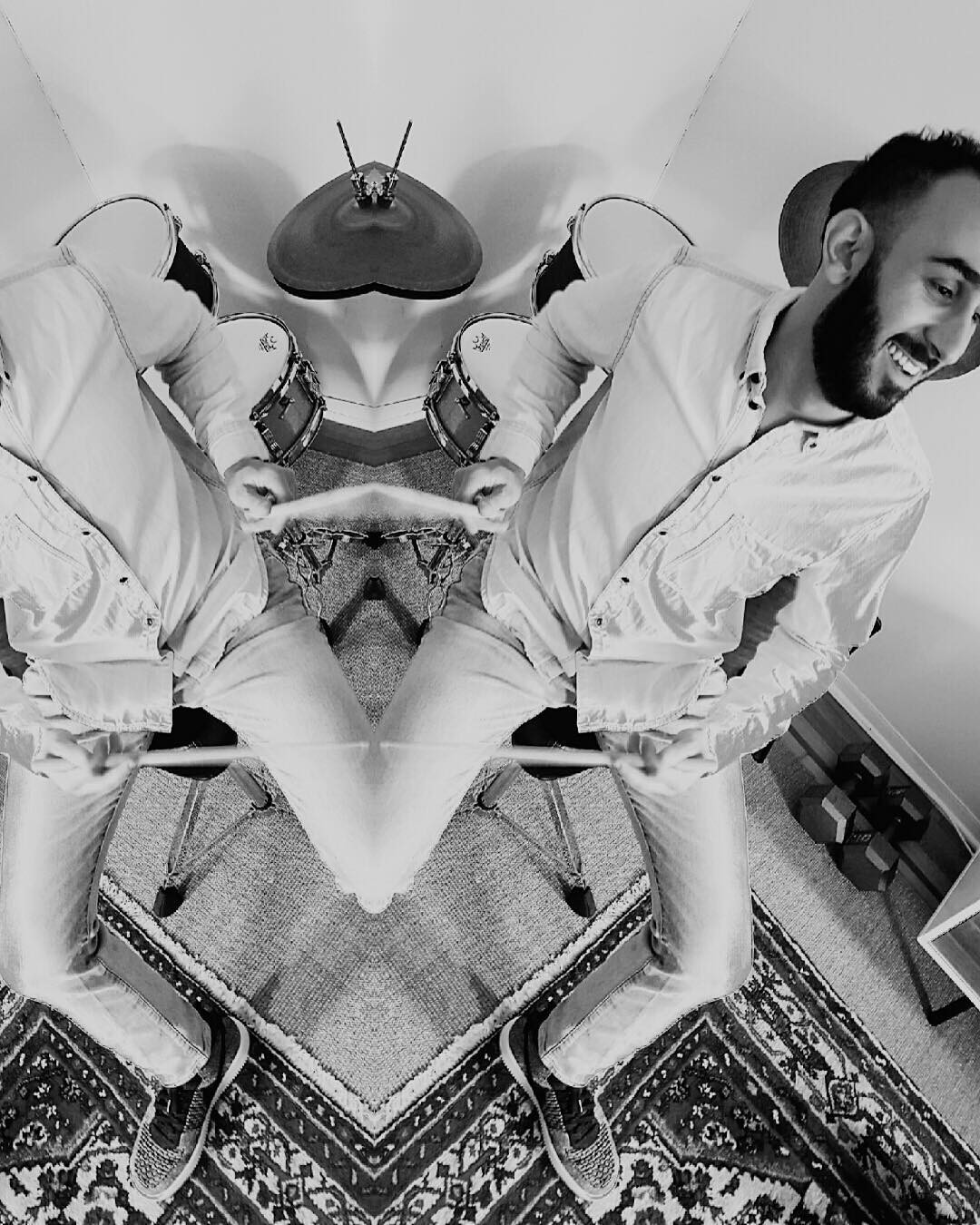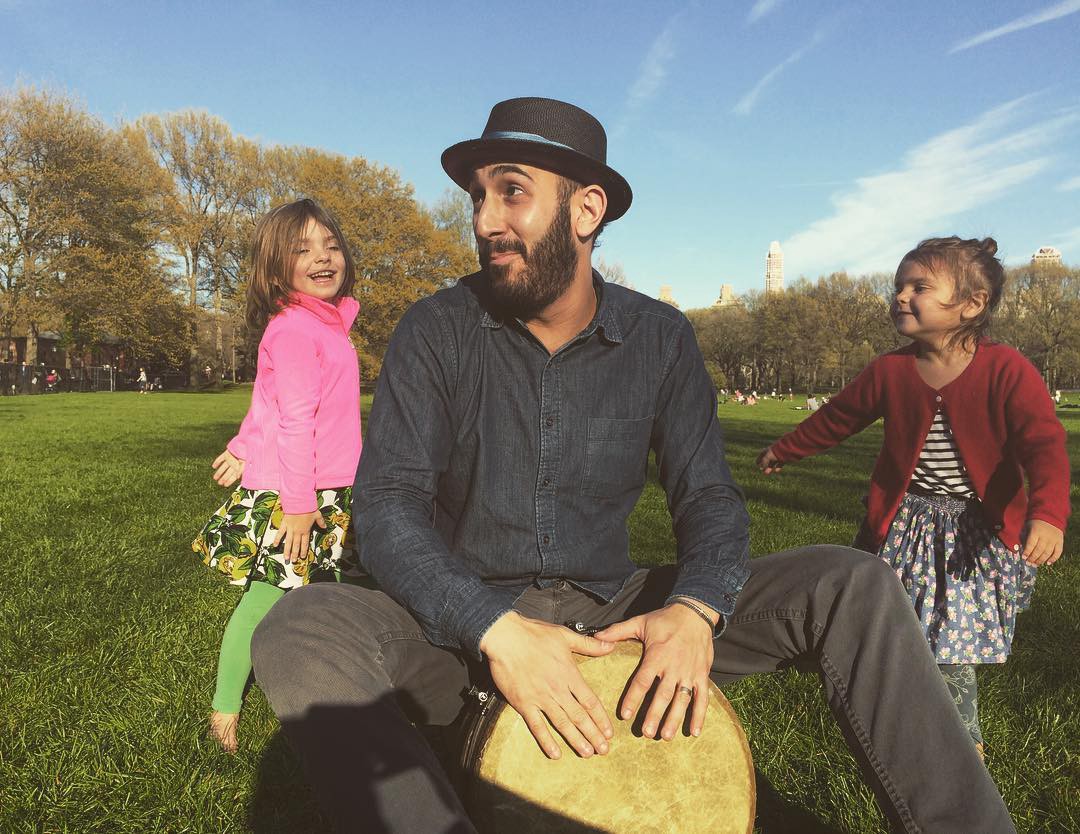Jake Goldbas, drummer, musical director, educator and collaborator shares his hard earned wisdom on building a thriving career in the arts
Behind every Instagram there are hours of hard hustle. Jake brings the Soloist Collective behind the scenes and shows us how to find joy in every moment.

As told to Emily Wenner and Kristin Hanes
1) Head down, hard work, and consistency
I have always tried to bring my “A-Game” to every gig. Whether it’s a dive bar or a music festival- I try to put everything I have into every performance. I was taught to first and foremost hone my craft, practice, continually learn and grow, and add to my skill set. I try to see every opportunity as a learning experience.

Jake Goldbas wears Greats Brand Sneakers and plays with Vic Firth drumsticks
Jake serves as musical director and drummer for Michael Blume. Michael says about working with Jake:
I love that he does so many different things. It so speaks to him as a Soloist in that he is coming to my project as a musical director, drummer, and collaborator. He’s doing all these different things that I then benefit from. And then he goes to a Cuban salsa gig in the Bronx and they benefit from him working with me. It’s very 2017 and very Soloist that he’s able to showcase his diverse set of skills in diverse settings, and then they all fold into each other in unexpected ways.
2) Showing up: Be On Time
People know that there’s no chance in this world that I’m going to be late for a rehearsal or a gig or a meeting. It’s non-negotiable that I’m going to be on time. Reliability can put you in another league with only a few people that the person making the hiring decision is choosing from. Also, when you’re part of any ensemble- I feel you have an obligation to respect the time and energy of the group.

Jake Goldbas with Nia Harris, Dionne Warwick and Clive Davis
3) Awareness and Taking Context Clues
I’ve been really sensitive to the etiquette of all situations since I started working. If I’m around an older jazz musician, I don’t call them by their first name. Instead of Benny Golson, I’d call him Mr. Golson until he told me to call him anything else, out of respect for his contribution to the art form.

Jake Goldbas at his home studio
Broadway has a specific etiquette. For instance, the musicians in the pit can’t see me in the drum nest at Dear Evan Hansen. A friend who was getting me into the scene was adamant about some advice he gave me when I first started there. He said to do everything I could to play exactly the way the principal drummer, Jamie Eblen plays the show. So I knew I had done well when I was subbing and I went down to the pit to introduce myself after the show, and the other musicians said, “Oh, we thought you were Jamie!” because down to the tiniest note on a cymbal, I played it exactly how Jamie plays. My friend’s advice was super valuable, and respecting how the show is usually played and how the ensemble all work together was really important to my experience at Dear Evan Hansen.

Jake Goldbas brings Jazz to Young People through Let Freedom Swing
4) Stay top-of-mind and follow up
Staying top of mind is huge. I make sure to nurture my relationships with people even when we’re not currently working together. Liking people’s things on Instagram has led to me getting calls for gigs. It sounds weird, but that visibility reminds them of me. I’m not the only guy who plays drums really well in New York City, so staying connected in multiple ways leads to people considering me for a variety of opportunities.
10 years ago when I moved to the city I was 18 and lived in a dorm room, and I developed and implemented a lot of strategies for networking. Today I use many of those same tactics. Whenever I have a gig and meet someone, I follow up with an e-mail the next day. I make sure I stay on everybody’s radar and express and excitement about any new projects coming my way.
5) Understand that a lot of your career will be straight hustle
For me, as a Soloist, a key to my fulfillment as a working artist is embracing every element of the hustle. The work behind the work is just hard hustle. I recently had a meeting where I was sitting in a board room at the record label of my dreams with a group of people who are integral to the trajectory of a wonderful artist I work with, and to my career as his musical director. After that meeting, I left to go and teach three private drum lessons in a row, going over things like paradiddle rudiments.
data-animation-override>
“You need to embrace all of the elements of your career that make ends meet in the long term.”

Jake’s wife Kate lugs his gear around
It’s not glamorous. People say that a lot of the stuff that I do really looks glamorous. I highlight the glamorous parts on my Instagram. But there’s a lot of lugging gear into the back of my car and looking for parking, printing out charts, studying references, and working around the clock.
data-animation-override>
“The work behind the work is just hard hustle.”
I was first inspired to start drumming when I was five years old and I saw a drummer playing on the subway in New York. He was bringing joy to the dreary, underground world of the subway just by playing his groove. I loved that. So I feel like there is a little bit of that subway musician hustle always in what I’m doing.
6) Work Until You Get to Say No
I’ve always been a fan of the philosophy of “fill your plate with a lot of opportunities so you can always say no to something.” You never know which opportunities are going to explode into something great. It’s important to fill up your schedule or audition for stuff you’re not even sure you want to do. Be there and have the opportunity at your disposal to keep at it or to say no. When you’re starting out as a Soloist, there’s a fear of not being called for opportunities. Now I’m saying no to things, which gives me confidence as a working musician and a little less fear.
7) Be a Joy to Work With
data-animation-override>
“I would say to treat everyone like they are your colleague for life, no matter the situation. Treat every project and every interaction with precious care. It’s the opportunity for you to show your heroes what you are made of. You never know what opportunities are going to come from interactions with others.”

Jake Goldbas with Bill T. Jones
When I was working with Bill T Jones, I would watch him like a hawk and realize that what he wasn’t saying was almost more important than what he was saying. He would trust his intuition and trust the skill and creativity and brilliance of the people he was working with. When he did speak, he used carefully crafted direction. So I’ve realized as I’ve stepped into a leadership role for interdisciplinary performances, or as a musical director, the main thing to do is surround yourself with collaborative, creative and brilliant people, and let them do what they’re best at.
Specifically I think that Jake is just- he’s down- he’s down to make it happen. He supports the ideas I have and he has a way to make it happen. I’m looking to be able to come into the room and try things. We try six things and maybe five don’t work, but that sixth thing is amazing. I love that we can fail together and try things and get to what works. I feel really comfortable failing in front of him and that’s so important in a creative partner. — Michael Blume

Jake Goldbas with Michael Blume and his band
8) Find Your Own Lane
No one path is correct in terms of creating your job when you’re your own boss.
One week I might play eight shows on Broadway, and then I get a call to play percussion for Aretha Franklin. I take each gig as it comes and am often surprised at the range of incredible opportunities that come up.
data-animation-override>
“I just bring my passion into every situation, every day. The work is hard. Rewarding but hard. However you can make ends meet, as long as you’re following your passion, and are true to what you set out to do- I consider that a success.”
You have to enjoy the journey of whatever your lane is, and congratulate yourself all along the journey and not just when you’ve passed the test or finished the gig. Congratulate yourself when you’ve worked on preparing the music for six hours, and you’ve sat down and picked up the parts before you went to the rehearsal.
data-animation-override>
“Celebrate the journey of being in your own lane.”

Jake Goldbas teaching percussion students in Central Park
Jake Goldbas moved to New York City at age 18 to pursue a degree in jazz performance at Manhattan School of Music. Ten years later Jake has graduated from MSM with a Masters in Fine Arts. He’s married to a fellow musician and they have a beautiful baby boy together.
Hear more from Jake in his work with…
Or for private lessons



